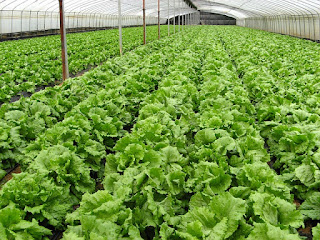Changes in Organic Farming
Big Changes in Organic Farming
Changes in organic farming inside the United States have been huge over the years. Increased organic food sales and increased demand for organic food. Supply from native organic farms were unable to meet the demands even though organic croplands have shown a significant increase over recent years. The 2008 farm act really handcuffed the organic farm industry for the next decade, by funding the bioengineering and non-organic farm industries in the hundreds of millions while reducing the organic farm industry funding.
How Did Organic Farming Begin
The concept of organic farming came from India when Sir Albert Howard learned their farming methods and championed for those concepts in the early 1900's, along with F.H. King and Rudolf Steinerto, to be used in the west for an improved farming system (Adamchak).Changes in Organic Farming Over the Years
Organic food sales increased an estimated 30 billion dollars from 2010 - 2020, with certified organic cropland areas increasing 73% from 2011 - 2019, because consumer demand for organic food has shown impressive growth since the 90's (USDA ERS).Since the 70's, the demands for organic food in the United States started to outweigh the supply from its organic farms (a 5% gap exists between supply and demand with international imports filling the demand), needing the U.S Department of Agriculture (USDA) to recently step in and offer $300 million dollars for farmers to farm organically because the number of farmers farming organically is dropping instead of increasing to meet the demand (CBS News Minnesota). Since 2008, significant changes in organic farming include the number of traditional farms transitioning to organic dropping 71% (USDA).
The 2008 Farm Act Favors Non-Organic Industries
Reduction in National Organic Initiative Funding
The National Organic Initiative is funded through the Environmental Quality Incentives Program which provided training and money for farms interested in changing to organic farms (USDA NRCS). The 2008 farm act reduced EQUIP funding while providing 100s of millions of dollars to traditional farming and bioengineering facilities that provides food full of genetically modified organisms (GMOs).More Funding for Traditional Farming and Bioengineering Facilities
U.S Government Created a Wider Gap Between Non-Organic and Organic Industries
What the Government did to the organic industry is atrocious. The demand from the people was too high. A real Government of the people would have this issue more balanced and continue to allow the people to decide. The U.S government helped to create a wider gap between the organic farm industry and the non-organic and bioengineering food industries. Gaps exist between good and poor nutrition in healthcare costs, advertising, price of food, even deaths. The organic food industry would help cut down the nations obesity rates and healthcare issues related to unhealthy diets.The demand for organic food in the U.S has been increasing since the early 90's, so high that the demand actually outweighed the supply of the country, so why would its government reduce funding for an initiative so positive their citizens wanted at the time?
Even though traditional farming and bioengineered food were more popular during the farm act of 2008, the U.S government should have still increased funding for EQUIP. If I'm not mistaken, The National Organic Initiative was capped at $300,000 every 6 years to fund farms producing better quality food for their people which means they would have to rely on their own funding as well. Is this why organic prices are higher? The demand is there, however organic products are still forced to compete with larger companies who sell lower quality food at lower prices with better financial support from the U.S Government.
There is absolutely no reason to cut funding from an initiative so positive. The only reason I can think of is personal friendships, campaign funding sources, lobbyists, etc. Since food is a necessity, an industry like organic farming poses a huge threat to big food businesses, their subsidiaries, and every business attached to traditional farming and bioengineering, especially if they continue to see increasing demand for organic food.
Is it safe to assume that political funding is influencing political decisions in the American food supply? Why the American people's health is not their top priority is beyond me. Obesity is a disease that is out of control in the United States. Cancer and diabetes all have root causes related to bad diets. With so many illnesses like depression and diseases associated with poor nutrition why would the Government not increase the funding for EQUIP to help meet the demand of a healthier food supply.
It might have been a good idea by the Government to help create increased awareness of poor nutrition and advertise organic products more, allowing people to choose better. I think a lot of folks are suffering from unawareness and since the government is aware of the seriousness of poor nutrition, they should allow their people to become better educated and help them make better choices without controlling them.
The Government is doing the opposite. The Government should not be responsible for influencing food pricing, making it harder for farmers to switch to organic, and basically eliminating business competition. With a budget of only 90 million for food and education, the Government allows unhealthy food advertising in the billions, especially to kids and more towards minorities. They fund bioengineering facilities and non-organic farms in the hundreds of millions and continue to remain silent on the seriousness of poor nutrition.
Works Cited
USDA ERS. “USDA ERS - Organic Agriculture.” Www.ers.usda.gov, 1 Aug. 2022, www.ers.usda.gov/topics/natural-resources-environment/organic-agriculture.aspx.
Adamchak, Raoul. “Organic Farming | Definition, History, Methods, & Benefits.” Encyclopædia Britannica, 2019, www.britannica.com/topic/organic-farming.
CBS News Minnesota. “More Consumers Buying Organic, but Farmers Still Wary.” Www.cbsnews.com, 22 Sept. 2022, www.cbsnews.com/minnesota/news/more-consumers-buying-organic-but-farmers-still-wary/. Accessed 11 Jan. 2023.
USDA. “USDA to Invest up to $300 Million in New Organic Transition Initiative.” Www.usda.gov, 22 Aug. 2022, www.usda.gov/media/press-releases/2022/08/22/usda-invest-300-million-new-organic-transition-initiative. Accessed 11 Jan. 2023.
USDA NRCS. “Http://Www.nrcs.usda.gov/Programs-Initiatives/Eqip-Organic-Initiative.” Natural Resources Conservation Service, www.nrcs.usda.gov/programs-initiatives/eqip-organic-initiative. Accessed 12 Jan. 2023.
Congress. “H.R.2419 - 110th Congress (2007-2008): Food, Conservation, and Energy Act of 2008.” Congress.gov, 2019, www.congress.gov/bill/110th-congress/house-bill/2419.








Comments
Post a Comment